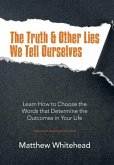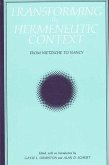This book can fundamentally change what you believe ¿ and whom you trust. From the tricks our brains play on us to the failings of group dynamics, we make decisions every day based on faulty information and untrustworthy advice. We see what isn¿t there, remember what never happened, and put our trust in experts who are as fallible as we are. By drawing on the latest in philosophy, science, and psychology, Michael Philips reveals a broad range of dangerous shams, lies, and delusions, and provides some ground-breaking tips for seeing through the simple untruths that pervade modern life. Succinct and entertaining, The Undercover Philosopher is an essential guide to what (and whom) we should believe, in every part of life, from medical diagnoses and financial advice to morality and religion. Michael Philips taught philosophy at American and Canadian universities for more than thirty years. Professor emeritus, performance artist, and author of numerous books and scholarly articles, he has written for publications ranging from Mind and Philosophy Now to the New York Times.








